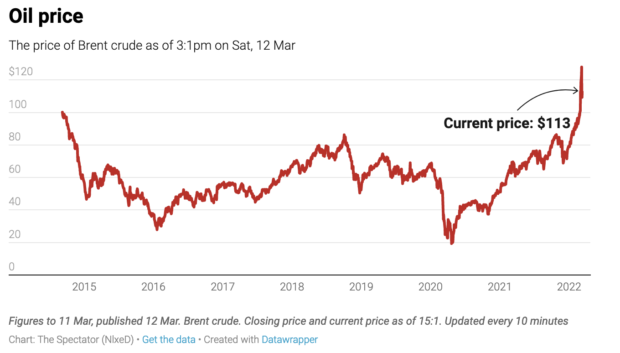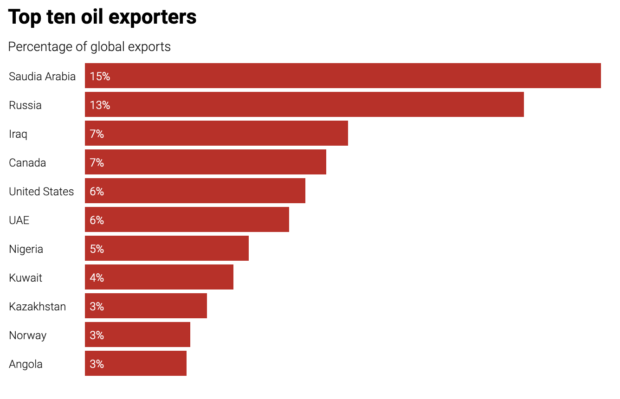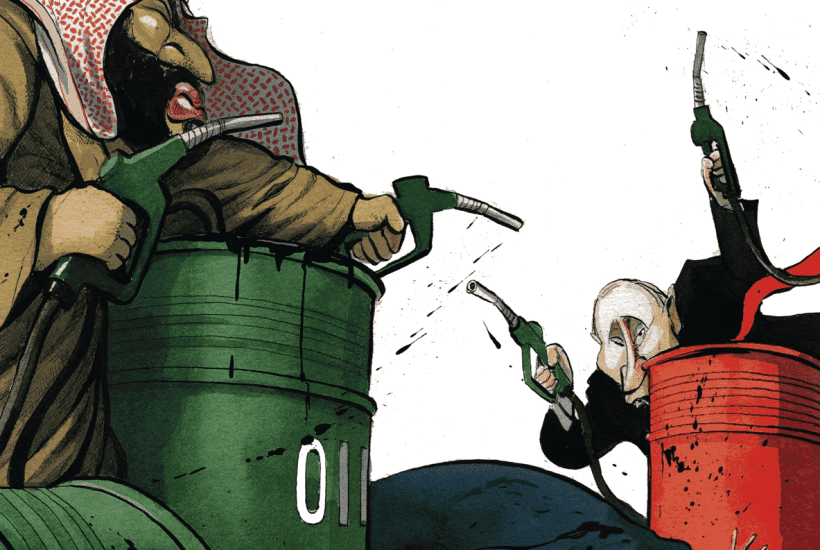The oil price is up by more than 40 per cent since the start of the year. It is being driven up by the Russian invasion of Ukraine, the lack of investment in oil and turning the world economy on and off again: US production is still not back to pre-pandemic levels. In the immediate term, as I say in the Times today, pretty much the only way to bring the price down is to get Saudi Arabia – which has 1.5 to 2 million barrels a day of spare capacity – to pump more.

The West’s relationship with Saudi Arabia has always been morally problematic. The justification for it, despite Riyadh’s appalling record on human rights and its role spreading Salafist Islamist ideology, is that we cannot afford to have the kingdom as an enemy: its friendship is essential to economic stability.
Yet Saudi Arabia isn’t inclined to help the West at the moment; Mohammed bin Salman is not even taking Joe Biden’s call. The reasons for this are many. The Saudis resent the fact Biden called the country a ‘pariah’ following the murder of Jamal Khashoggi. Up to now, Biden has also refused to speak to MBS and released an intelligence assessment blaming the crown prince for the journalist’s brutal murder.
Bin Salman himself is irritated by what he sees as a US retreat from the Middle East. He is also irked by Washington ending support for Saudi offensive operations in Yemen. The Biden administration’s decision to no longer list the Houthis as a terrorist organisation has caused further damage to relations with Riyadh.
The biggest problem in US-Saudi relations, though, is the nuclear negotiations in Vienna. The Saudis feel that Iran is being offered far too much to go back into the nuclear deal.
In contrast to Biden’s approach, Boris Johnson’s government has cultivated relations with Saudi Arabia: no G7 country has better links with the crown prince. This relationship undoubtedly involves dubious moral compromises: the British didn’t even join the Biden administration in halting weapons sales to Saudi Arabia. But if there was ever a time to use the capital that has been built up, now is it.
Johnson should make the case to the Saudis that they have an opportunity to reassert their role as the West’s indispensable interlocutor on the oil market and force Washington to revive the relationship.
If the Saudis won’t co-operate at a time when high oil prices are threatening the West’s geopolitical objectives, economic prosperity and its leaders’ political futures, countries will start to look elsewhere. There will be a growing chorus for doing a deal with Iran at almost any cost to get its oil back into the market.

The distasteful trade-offs involved in all of this is another reminder of why the West needs to develop its own energy sources. In the medium term, nuclear and renewables are a far better way forward than having to do deals with the Saudis.
Got something to add? Join the discussion and comment below.
Get 10 issues for just $10
Subscribe to The Spectator Australia today for the next 10 magazine issues, plus full online access, for just $10.



















Comments
Don't miss out
Join the conversation with other Spectator Australia readers. Subscribe to leave a comment.
SUBSCRIBEAlready a subscriber? Log in